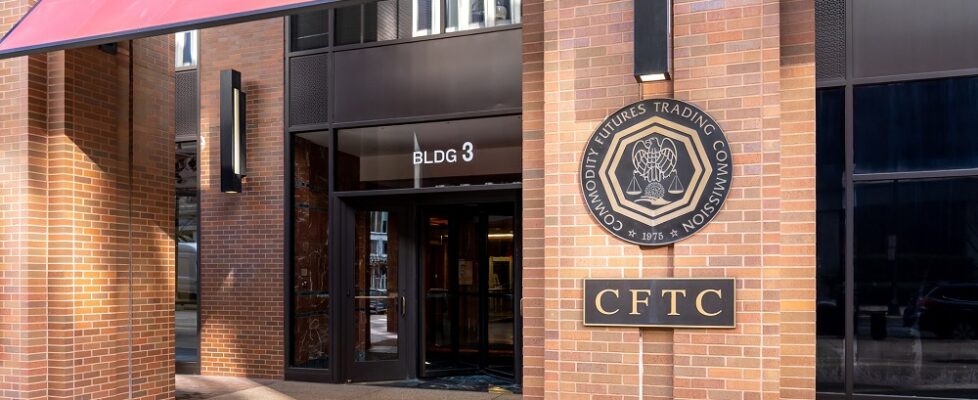CFTC accuses head of GDLogix of trying to delay judicial process
The Commodity Futures Trading Commission (CFTC) has clashed with Daniel LaMarco, an officer of fraudulent Forex scheme GDLogix, over his attempt to oppose the entry of default against him.
This is made apparent by documents filed by the CFTC with the New York Eastern District Court on May 25, 2022.
The regulator claims that the defendant is trying to delay the proceedings against him by challenging the entry of default. The CFTC says LaMarco’s motions are wholly without merit, contain misleading claims, and attempt to shift blame to others including the CFTC and former defense counsel.
Moreover, after securing an entry of default against LaMarco, the CFTC has filed a motion for default judgment.
The CFTC requests that the Court impose a civil monetary penalty of $2,587,800 against LaMarco and GDLogix. The amount of the fine is equal to three times the defendants’ monetary gain of $862,600 from their fraudulent activities, together with post-judgment interest.
Also, the CFTC requests the Court order the defendants to pay restitution of $862,600 on a joint and several basis, which is equal to participants’ net losses, together with post-judgment interest.
LaMarco’s most recent motions are untimely, provide barebones arguments, and appear to be filed for the purpose of delaying the judicial process and avoiding liability, the CFTC argues. Because LaMarco fails to demonstrate good cause for setting aside the Clerk’s Entries of Default and fails to meet the extraordinarily high standards imposed on a motion for reconsideration, the CFTC requests that the Court deny these Motions in their entirety.
As alleged in the CFTC Complaint, from January 2011 through March 2016 (the “Relevant Period”), LaMarco, individually and as agent and officer of GDLogix, fraudulently solicited and accepted $1,492,650 from 13 individuals to trade off-exchange leveraged or margined retail Forex contracts in a commodity pool operated by the defendants.
LaMarco, by word of mouth, email, the Internet, the use of mails and other means, solicited and accepted $1,492,650 from the pool participants on behalf of GDLogix. LaMarco solicited participants by falsely representing to them that he was a profitable trader and touting the purported safety of his forex investment strategy and the success of his personal investments in forex. LaMarco provided participants with a GDLogix “Memorandum of Offering,” which indicated that participants’ funds would be placed in a commodity pool run by GDLogix and provided fraudulent pool net asset values.
All of these representations were material and false. LaMarco also omitted material facts in his solicitations to pool participants, including but not limited to failing to disclose that: neither he nor GDLogix had ever been registered with the CFTC in any capacity; he was misappropriating participants’ funds; and, he was losing participants’ funds trading forex in his personal accounts.
LaMarco used his software consultancy business, GDLogix, to facilitate his forex solicitation and trading activities. He deposited participants’ funds into a GDLogix bank account at J.P. Morgan Chase, as well as two personal bank accounts at J.P. Morgan Chase. All of these bank accounts were opened by LaMarco and under his control.
Of the over $1.4 million solicited and accepted from pool participants, LaMarco transferred approximately $1.3 million to two personal trading accounts opened in his name at registered futures commission merchant (FCM) Gain Capital. These trading accounts were personal accounts held in the name of, and for the benefit of, LaMarco, and not opened or held for the benefit of pool participants.
LaMarco suffered significant trading losses in his personal trading accounts and lost the majority of participants’ funds through his unprofitable trading. Gain Capital closed both of LaMarco’s personal trading accounts in April 2016. Compl.
LaMarco also misappropriated participants’ funds by returning $630,050 to certain pool participants as purported trading “profits” in the nature of a “Ponzi” scheme. He lost the remaining funds trading or using them to pay his personal expenses.
To conceal and perpetrate his fraud, LaMarco provided pool participants with false monthly account statements showing the pool’s account activity, including purported trading profits and account balances.
In February 2016, LaMarco represented to pool participants in these statements that the total value of the Pool had increased to over $1.79 million. In reality, however, LaMarco had lost nearly all of participants’ funds through unsuccessful trading and by diverting $630,050 of the total principal invested as Ponzi payments to certain participants.




